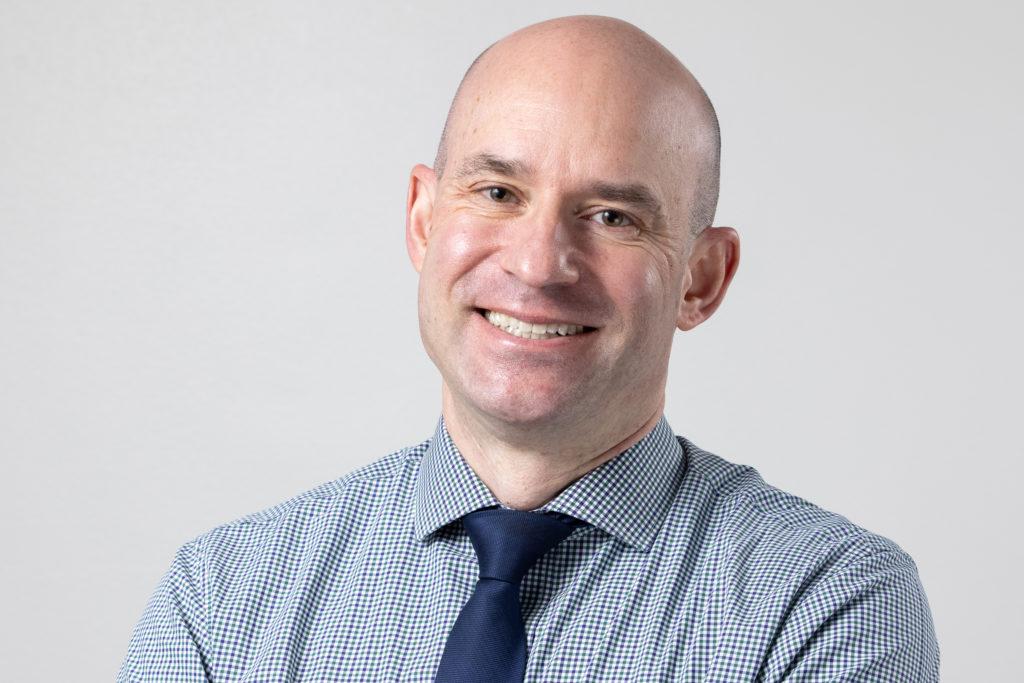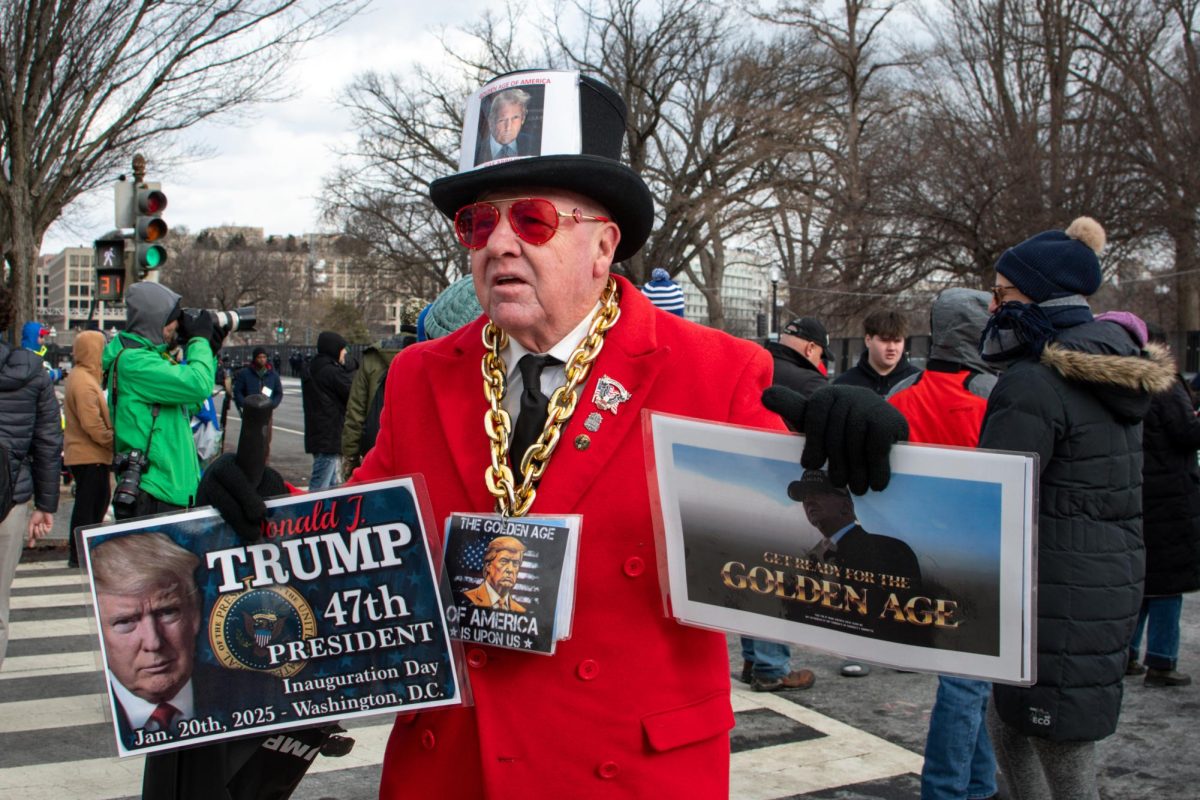The School of Medicine and Health Sciences will begin clinical trials to determine if a vaccine used to prevent mpox, formerly known as monkeypox, in adults is safe and effective for youth.
David Diemert, the clinical director of GW’s Vaccine Research Unit, said the unit will conduct a yearlong trial of the Jynneos mpox vaccine, assessing antibody responses in 12- to 17-year-olds, which the Food and Drug Administration will use to determine the vaccine’s safety and effectiveness before they approve the shot for adolescents. Diemert, a professor of medicine, said if approved, an effective vaccine would have a “huge impact” on stopping and preventing mpox outbreaks for adolescents in the United States and across the globe.
He said the National Institutes of Health chose GW as one of 18 sites across the country to perform clinical trials, which include universities, hospitals and clinics. Diemert said GW will monitor about 40 adolescent participants and the 18 sites will monitor a total of 315 adolescents and a comparison group of 135 adults aged 18 to 50.
“If the vaccine is approved for those under 18 years, it will mean that we’ll have an effective tool at our disposal to quickly and effectively stop future outbreaks of mpox,” Diemert said in an email.
He said there were only “a handful” of mpox cases among people under the age of 18 during the virus’ outbreak in the United States in 2022, but there are “frequent” child mpox cases in Africa, where the first human became infected with the virus.
Diemert said GW researchers will administer two injections of the vaccine to participants one month apart and follow participants for one year, looking at antibody responses that are “predictive” of protection against the disease. He said participants will complete a diary card to record symptoms, like injection site reactions and fatigue, for seven days following each injection.
He said GW is currently recruiting adolescent participants on social media and through local pediatricians, teen health clinics, health departments, parent groups and former adult study participants who may have teenage children.
He said NIH provides funding to the University for conducting the trials dependent on the number of people enrolled, which will cover “salary support” for the 15 researchers conducting the trials, supplies, participant compensation, pharmacy services and “recruitment activities,” but did not specify the exact amount of funding GW will receive.
Diemert said researchers expect the vaccine’s safety to be comparable among adolescents and adults, with similar expected reactions, which include injection-site reactions like swelling or temporary pain and generalized reactions like temporary fatigue, achiness and fever.
“Regarding safety, there is a lot of data already on the JYNNEOS vaccine in adults, and we don’t expect there to be any big differences in the expected reactions to the vaccine in younger people,” Diemert said.
The DC Department of Health has logged 528 mpox cases in the District since the virus first reached D.C. in May 2022 but fewer than five cases in residents under the age of 18, according to department data as of Sunday. DC Health officials have administered 39,502 doses of the mpox vaccine as of Sunday, including a dozen vaccines to people under the age of 18 after D.C. began offering Jynneos mpox vaccine appointments in June 2022, when the District had the highest number of mpox cases per capita of any state.
The FDA approved the use of the Jynneos vaccine to treat mpox in adults over 18 in 2019 and for emergency use in people under the age of 18 in August 2022 after the Department of Health and Human Services declared mpox a public health emergency that month.
Since May 2022, 22 people in the District have been hospitalized for mpox, but no District resident has died from the virus, according to DC Health data. Symptoms of mpox include rash, fever, exhaustion and muscle aches and typically begin within three weeks of exposure to the virus, according to the Centers for Disease Control and Prevention.
Infectious disease experts said expanding mpox vaccination to include minors will help prevent future outbreaks because the vaccines will increase protection for adolescents susceptible to mpox infection through close or sexual contact.
Ian Lipkin, a professor of epidemiology and director of the Center for Infection and Immunology at Columbia University, said vaccinating people under the age of 18 will prevent infection in adolescents who are sexually active or before they become sexually active because mpox is often spread during sexual contact.
Lipkin said it is possible that the mpox virus can evolve to become more transmissible and spread without close contact. He said widespread vaccination, including in adolescents who can also spread the virus, helps protect against a potential future resurgence of mpox cases.
“The more people who are vaccinated, the higher the probability that we’ll be able to abort an outbreak and prevent a pandemic,” Lipkin said.
Although never considered a pandemic, the World Health Organization declared mpox a public health emergency of international concern in July 2022 and the CDC recorded mpox cases in 111 countries. Mpox is transmitted through close or direct contact with bodily fluids, rashes or scabs from a person infected with the virus, according to the CDC.
Peter Gulick, a professor of medicine at Michigan State University who administers mpox vaccines at his clinical practice, said vaccine testing among adolescents is necessary to reduce transmission because teens can spread the virus through prolonged close contact, even if they are not sexually active.
He said he administers mpox vaccines to individuals at high risk for mpox, like those who are immunocompromised, have multiple sexual partners and individuals with HIV, in accordance with CDC recommendations. He said some adolescents may also be at high risk for mpox if they engage in risky behavior.
“It’s a disease that anybody can pick up by close contact,” Gulick said. “And so young kids, even if they don’t have any kind of sexual contact, they can just touch people that have had mpox in those areas on the arms, and the chest and everything. If they have prolonged contact with those open lesions, they can get mpox.”








